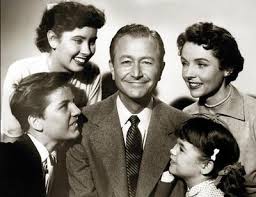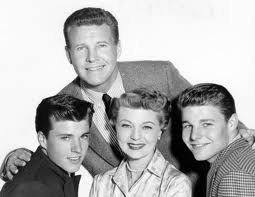Conditional Love-Most Parents Love Their Children Conditionally














The Dark, Underlying Parental Taboo
It is often believed that parents love their children unconditionally. There is a societal dictum which emphasizes that parents are to accept and cherish their children no matter what. After, that is what parents do or should do. Parents must love their children no matter how prodigal and imperfect they are.
This unconditional and open acceptance of children is an integral part of being a parent. Another idea that it is totally abhorrent for parents to love their children on certain conditions. Many people who hear this reasoning are, of course, totally perturbed at such a premise. The idea of parents loving their children conditionally is totally egregious...........or is it?
As comedienne Joan Rivers is fond of saying, "Oh, grow up!" I have another phrase," Oh, now come on and let us be in the REAL world." Most parents love their children conditionally. Oh no, you say. However, subconsciously you know better. Of course, most parents love their children-with conditions!
The familial environment is a complex one, often with a hidden modus operandi. In many families, parents and children have roles and expectations which they must fulfill in order to keep the family unit functioning smoothly. Many families value strict conformity and adherence to a specific family consensus. This means that each member of a family must succumb to a particular familial groupthink which one is discouraged, either overtly or covertly, from adopting a differing and/or divergent viewpoint.
The family is the first environment in which conformity to societal norms are emphasized. The most important thing in many families is the children's unquestioning and/or strict adherence to familial and/or societal norms. In many families, children are aptly rewarded by their parents if they conform to parental norms. This child is considered by such parents to be the easy or the good child. He/she is often idolized by the parents who often use him/her as an example to "mold" and "control" the "rebellious" one in the family.
Many parents prize the good child because this child is often more pliable and easily controlled by them. Subconsciously, parents value children who easily conform to the family consensus. These children are not threatening to the family dynamic because they have a similarity to their parents whether it is in ideology and/or characteristically.
A child who conforms to and ultimately fulfills parental expectations is the one most adulated by parents. This child is also the one who is most favored and often given preferential treatment by the parents. This is the child other children in the family, especially those who the parents consider to be recalcitrant and more nonconformist, are told to follow.
Most families do not actively encourage individualism among its members, particularly the children. This is because the family is thought to be a cohesive and unified unit and any type of individualism and uniqueness among its members is viewed to be detrimental to the unit. In other words, children who are deemed by the parents to go against the family consensus are viewed quite negatively. These children are often considered difficult by the parents because they refuse to conform to the family consensus. Oftentimes, they are misunderstood by their parents who wonder "what went wrong", "where did he/she learn this from, we know he/she did not learn it from us", and/or "he/she does not get the program".
Many parents view such children as threats to the coherency of the family. To such parents, children are to be part of the family unit, not individuals. These children are usually the disfavored ones in the family, often subjected to differential treatment by their parents ranging from covert hostility to outright scapegoating. Many parents are subconsciously envious of the child who refuses to conform to their particular family dynamic because this child is doing what they secretly wish to do but are fearful of doing so, often for external reasons whether it is sociopolitical or socioreligious reasons.
Oftentimes, such parents take their more rebellious, individualistic, and unconventional children to outside authority figures such as clergy, counselors, psychologists, and psychiatrists in order to make them toll the particular family line. There are documented instances which such children are medicated by parents who want them to be "better behaved" and "more acceptable" to the family. Yes, many parents, like it or not, view their children as exact replicas of them or at least, want it that way.
Many children participate in activities that their parents want although inwardly, they would rather pursue their own individual activities. There are some children who are pushed beyond their mental and intellectual endurance by parents who have an idealized image of what the child SHOULD be. Studies authenticated that there is an unprecedented amount of stress among children due to their incessant conforming to often unrealistic and near impossible parental standards of academic and intellectual achievement and/or success.
It is the desire of some parents that their children always win no matter what the cost. Such parents feel if their children always win, they are good parents and their parental status is elevated. These are the same parents who actually deride their children if they miss the mark and/or fail. Such children will never hear the end of how they failed and in turn, disappointed their parents. The status of such children in these families are quite precarious indeed. In one moment, they are lionized by their parents for their successes and in the next moment, they are considered dismal failures because of an error.
There are children who achieve, not for their own inner satisfaction but to constantly please and conform to parental demands. I remember in elementary school, a prodigiously smart student made a C in a subject. Although her average was still an A, her mother became distant towards her because of that C. The mother even informed the daughter who was in 4th grade that she was an unintelligent child who totally displeased her. In other words, some parents love of their children are totally contingent upon their outer achievements whether it is earning all As, winning a sporting event, and/or winning a beauty contest award.
I know a father who constantly informed his daughter, who was a B student in college, that she was a failure all her life because she was never an A student in addition to not winning any type of academic accolades. This father, who was very achievement oriented and an A student throughout his academic career, wanted the same for his daughter. However, she was a B student throughout her academic career which totally displeased the father. According to this father, anyone who was not an A student was deemed to be totally stupid and inept. Anyone he said about the daughter was always negative to say the least.
Yes, many parents love for their children is totally contingent upon outer achievements and other tangible characteristics. Parents love and treat their children based upon how the latter please them and make them comfortable. Children who conform to the familial agenda make the parents feel at ease. This is basic instinct in that parents have an investment when they have children. Parents raise their children within a certain family system and their main wish is that their children learn, conform, and continue the family legacy. When their children do this, the parents are pleased, knowing that they have done their jobs as parents.
This parental investment regarding the family legacy is why many parents are often less loving towards any child or children perceived to be nonconformist and individualistic. These children are viewed as the breakers and disruptors of the family legacy which makes the parents extremely uncomfortable. Parents of such children believe that they must be doing a horrible job as parents because their children are not conforming to their dictum, often electing to follow a different path.
There are many parents who are unwelcoming to those children who choose to be nonconformist. Some parents even go as far as to disown and/or disinherit their children because they elect to follow their own individual path and not their family's path. Many parents are indeed threatened by such children because to them, the latter appear to be disrespectful and totally unappreciative of what they were taught.
Furthermore, these parents believe that such children have proverbially spat in the face of their cherished traditions. There are parents who believe that it is totally a mortal and grievous deviation for children to establish their own lifepaths and traditions. In essence, these parents believe that it is the obligation of children to continue the family tradition and legacy whatever it may be.
In conclusion, the idea that parents love their children unconditionally is mostly a myth. Many parents love their children conditionally whether they acknowledge it or not. In the family unit, children are expected to conform to the parental consensus whatever it may be. Children who conform to parental expectations are rewarded and idolized while children who are often individualized are usually demonized and expected to get in line. Parents who love and accept their children unconditionally are very few and far between. Any person, whose parents love them unconditionally, is indeed extremely lucky and blessed.
© 2012 Grace Marguerite Williams






